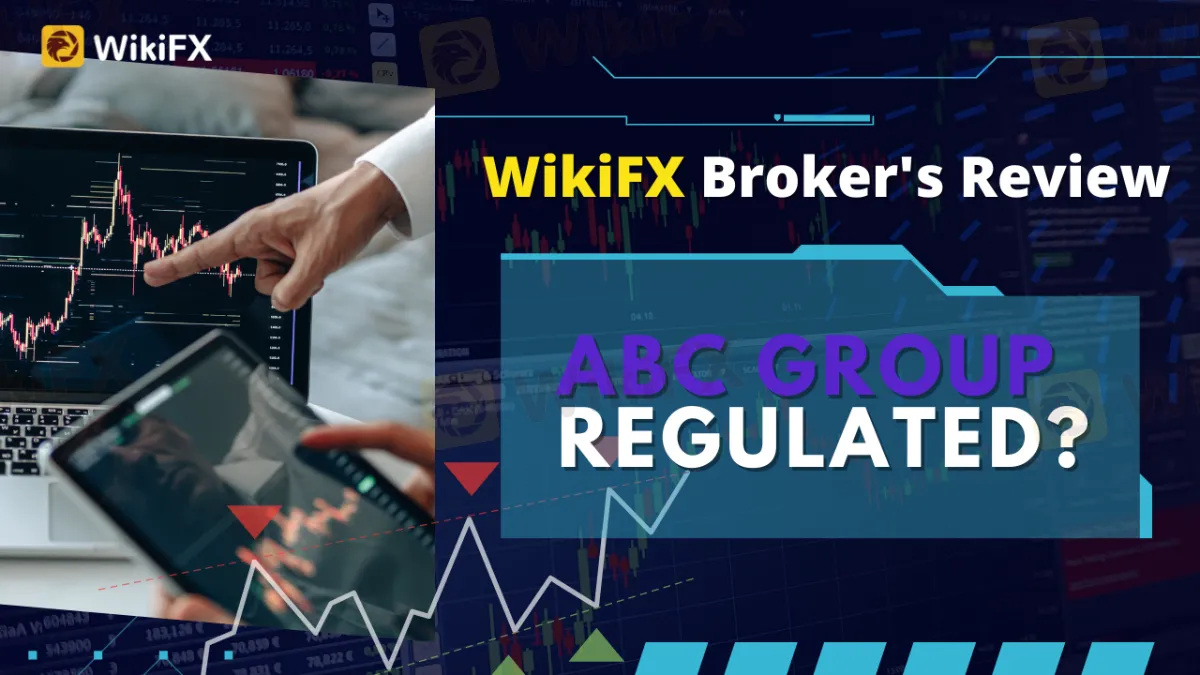简体中文
繁體中文
English
Pусский
日本語
ภาษาไทย
Tiếng Việt
Bahasa Indonesia
Español
हिन्दी
Filippiiniläinen
Français
Deutsch
Português
Türkçe
한국어
العربية
WikiFX Broker's Review: Is ABC Group Regulated?
Abstract:Even though it advertises discounts that seem too good to be true, ABC Group is not a certified or regulated broker. ABC Group claims to be owned by ABC Group Ltd, a company established by the Financial Services Authority of St. Vincent and the Grenadines (SVG FSA) with the registration number: 23920 IBC 2017.

Even though it advertises discounts that seem too good to be true, ABC Group is not a certified or regulated broker. ABC Group claims to be owned by ABC Group Ltd, a company established by the Financial Services Authority of St. Vincent and the Grenadines (SVG FSA) with the registration number: 23920 IBC 2017.

Upon checking their regulations as stated on their official website by WikiFX at the official SVG FSA. The business type registered is not a financial service nor an entity that can conduct forex trading (image shown below).


We do locate a match for the registration number in the SVG FSA, however, it belongs to a firm called “INVESCO LTD” rather than “ABC Group Ltd.” Furthermore, the SVG FSA is not a regulatory authority that awards forex trading licenses or governs firms that provide forex services.
More crucially, the Portuguese Securities Market Commission (CMVM) warned ABC Group that it is not permitted to engage in any form of financial intermediation activity. The complete warning is shown in the picture below:

The fact is that ABC Group is not regulated by anybody. That implies your data or money in this broker is at risk and is not protected by law. We would advise traders to avoid unregulated brokers such as ABC Group and instead deal with licensed brokers.
ABC Group on WikiFX
As previously indicated, the regulation of ABC Groups is not mentioned on the official website of the financial authorities. This broker is likely to be one of the FX market's con artists.

The rules for Saint Vincent and the Grenadines may be found here: https://www.wikifx.com/en/newsdetail/202208027034620584.html
About WikiFX
WikiFX is a forex search engine that allows you to quickly check the broker's regulatory status, which is the most crucial thing to know before investing. It has over 37,000+ listed brokers, both registered and unregulated, and has been working with 30 financial authorities to educate traders and prevent them from choosing the incorrect forex broker. Aside from educating traders, WikiFX may help prevent unlawful actions by your forex brokers.

WikiFX's database is sourced from official regulatory bodies such as the FCA, ASIC, and others. The published information is also fair, objective, and factual. WikiFX does not charge public relations fees, advertising costs, ranking fees, data cleaning fees, or other irrational expenses. WikiFX will do everything possible to keep the database consistent and synchronized with authoritative data sources such as regulatory bodies, but cannot promise that the data will always be up to date.
Visit ABC Group's WikiFX dealer website at https://www.wikifx.com/en/dealer/3143366799.html to learn more.
To get the news on the move, download the WikiFX App for free from the App Store or Google Play Store.

Disclaimer:
The views in this article only represent the author's personal views, and do not constitute investment advice on this platform. This platform does not guarantee the accuracy, completeness and timeliness of the information in the article, and will not be liable for any loss caused by the use of or reliance on the information in the article.
Read more

Space World Capital - The Forex Broker You Should Not Partner with
Explore this guide to know the scam of Space World Capital, which does not hold a regulatory license to operate forex business.

Crypto Craze Fizzling Out? Here is Why
The Crypto Craze among users is fading out. The wave of Cryptocurrency has slowed down. But what are the major reasons why this has happened?

Social Trading Goes Mobile at M4Markets
A new mobile application for social trading has been launched through a collaboration between brokerage firm M4Markets and fintech provider Brokeree Solutions

ACY Securities Expands Crypto CFD Offering with 24/7 Trading Access
ACY Securities, a global broker specialising in CFD trading across multiple asset classes, has expanded its cryptocurrency offering by introducing 10 new digital currency CFDs and enabling 24/7 trading access across all its supported platforms
WikiFX Broker
Latest News
The Dollar Keeps Falling: How Should We View Exchange Rate Volatility?
Asia-Pacific markets rise as investors parse a slew of data releases
Asia-Pacific markets mostly rise as investors parse a slew of data releases
WikiFX Gala Night Malaysia Concludes Successfully
IG Group Unlocks Over £425 Million amid a Capital Reduction
Elon Musk's xAI raises $10 billion in debt and equity as it steps up challenge to OpenAI
European Central Bank's tightening cycle is done,' chief economist says
ACY Securities Expands Crypto CFD Offering with 24/7 Trading Access
Stock futures fall after S&P 500 notches new record to cap winning second quarter: Live updates
How to Predict Forex Profits with a Profit Margin Calculator
Currency Calculator


